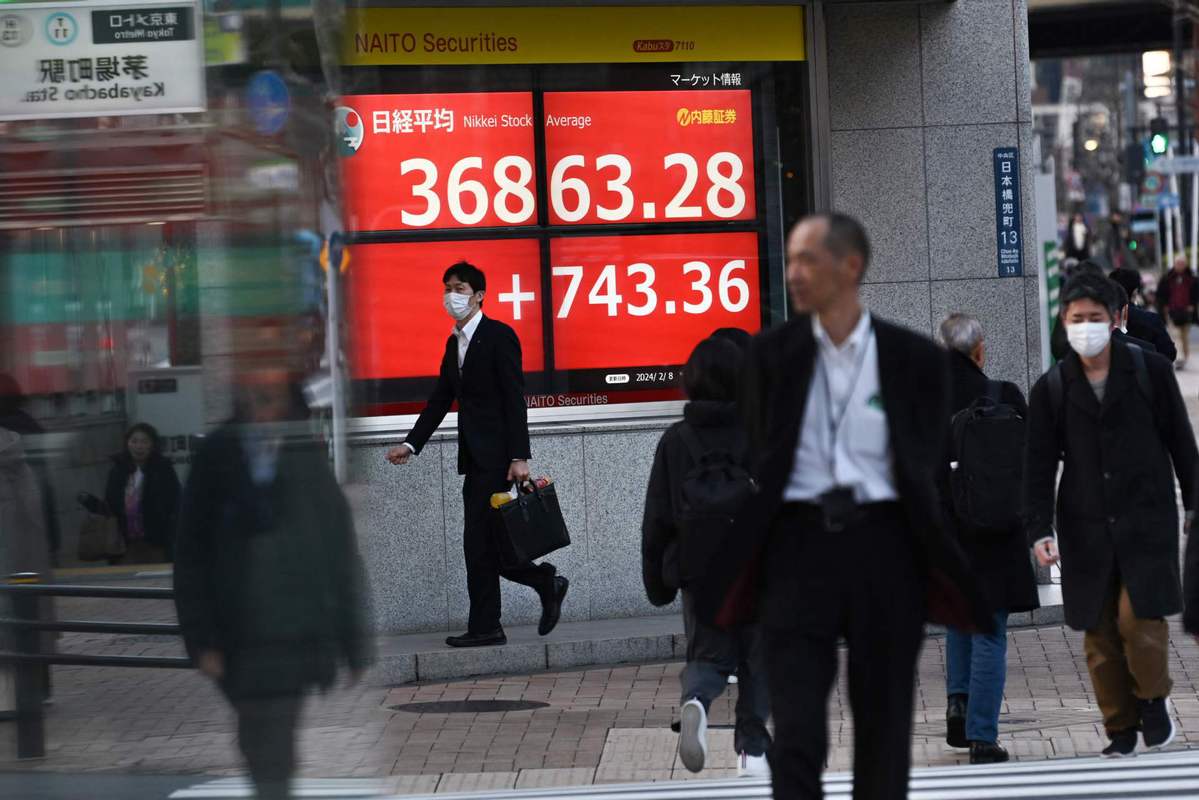Lack of drivers drops Japan down to fourth


Germany has overtaken Japan to be the world's third-largest economy. According to official Japanese data released on Thursday, Japan's nominal GDP in 2023 was 591.48 trillion yen ($4.21 trillion), lower than Germany's $4.46 trillion.
Nominal GDP refers to the value of all products and services produced in a year, calculated at current market prices. Compared to real GDP, nominal GDP is more susceptible to fluctuations in market prices and exchange rates. The average exchange rate of the yen in 2023 was 140.5 yen per US dollar, higher than the previous year, and the significant depreciation of the yen is the direct reason why Japan's nominal GDP was surpassed by Germany in 2023.
However, the depreciation of the yen has also directly driven an increase in inbound tourism and consumption by foreign tourists in Japan, stimulating the Japanese economy. While being surpassed by Germany, Japan's nominal GDP grew by 5.7 percent in 2023, marking the third consecutive year of positive growth and the highest growth rate since 6.5 percent in 1991.
The long, deep-seated reason why Japan's nominal GDP was surpassed by Germany in 2023 is the long-term lack of stable growth momentum in the Japanese economy. Following the collapse of the bubble economy in the late 1980s and early 1990s, the Japanese economy has been stuck in a long-term slump and has continuously narrowed the economic gap with Germany.
According to IMF data, Japan's GDP was $4.96 trillion in 2000, while Germany's was $1.95 trillion. Yet by 2020, while Germany's economy had expanded to $3.88 trillion, the Japanese economy had only slightly grown to $5.51 trillion. In other words, the size of the Japanese economy has changed little in the two or three decades since Japan's bubble economy burst, while in contrast, the German economy has experienced significant expansion and has now surpassed Japan.
The collapse of the bubble economy, which was fueled by easy credit, speculative real estate and stock market investments, also ruined the perception that Japan's economic growth would continue indefinitely. Japan has struggled to find long-term stable drivers of economic growth. The competitiveness of Japan's electronics industry has weakened, and issues such as its aging population and declining birthrate have intensified. Japan's influence in the automotive sector, where it has traditionally held a dominant position, has also declined significantly, and it failed to seize the opportunities presented by the significant changes in the global automotive industry, resulting in the loss of its status as the world's largest automotive exporter in 2023.
Finding long-term stable drivers of economic development to pull Japan's economy out of its long-term slump has become an urgent priority for the Japanese government.
GUANCHA.CN
































